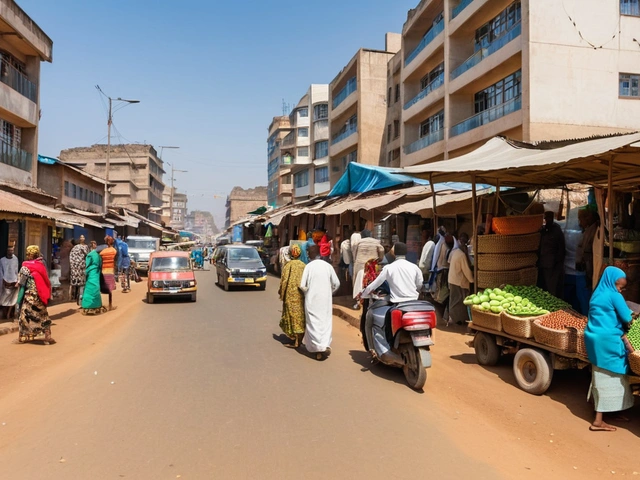Wealth in Ethiopia: What Real Wealth Looks Like
Think wealth in Ethiopia, and big cities, modern jobs, and successful business owners might pop up in your mind. But the truth is, wealth here goes way beyond flashy numbers. There’s a huge gap between the rich and the average person, and knowing where you stand—plus what’s possible—can make a difference for your future.
Let’s start with salaries. Most folks in Ethiopia earn their income through jobs in agriculture, retail, or government. On average, a worker might make less than 10,000 ETB a month, but salaries in cities like Addis Ababa are higher, especially for professionals in sectors like tech, pharma, or finance. Teachers, pharmacists, and skilled workers all see big differences depending on where they live and work. If you look for the highest-paying jobs, fields like engineering, management, or international organizations often hit the top of the list.
What about the financial elite? Ethiopia is home to a handful of millionaires and a tiny group of billionaires shaping entire industries. Names like Mohammed Al Amoudi pop up when people talk about the richest. These business moguls often dive into real estate, construction, and agriculture. For most people though, wealth isn’t just about having millions; it’s building enough security, income, and opportunity to move up—no matter where you start.
Ever wondered what it takes to get ahead? Investment is key. With the Ethiopian government pushing to attract investors, agriculture and manufacturing have gotten big boosts. Even smaller ventures in digital services, transport, or retail can turn a tidy profit if you know the market. Planning to invest? You’ll need to figure out the basic startup costs, network with local pros, and stay on top of regulations. The right investment—even with a modest sum—can grow fast in the right sector.
Don’t have capital to start a business? Earning extra money online is more possible than ever. Freelancing, e-commerce, and digital side gigs help Ethiopians reach a global marketplace. These online jobs don’t always make you rich overnight, but they’re a real way for students, stay-at-home parents, or anyone with internet access to increase their income. With platforms growing steadily, there are more opportunities popping up even if options like PayPal are still tricky to use in Ethiopia.
Wealth also connects with cost of living. Rent in Addis Ababa can strain the average salary, especially in popular areas. Learning about affordable neighborhoods, understanding market rent, and negotiating wisely help you keep more of what you earn. Every birr saved on housing, food, or transport goes further when you’re focused on getting ahead.
If you’re dreaming of moving up, Ethiopia’s economic scene might seem daunting, but there’s space for new success stories. Whether you’re working a steady job, planning a bold business move, or making money online, smart choices and patience can pay off. The wealth landscape in Ethiopia is changing, and with the right strategy, you’ll be ready to claim your share.






